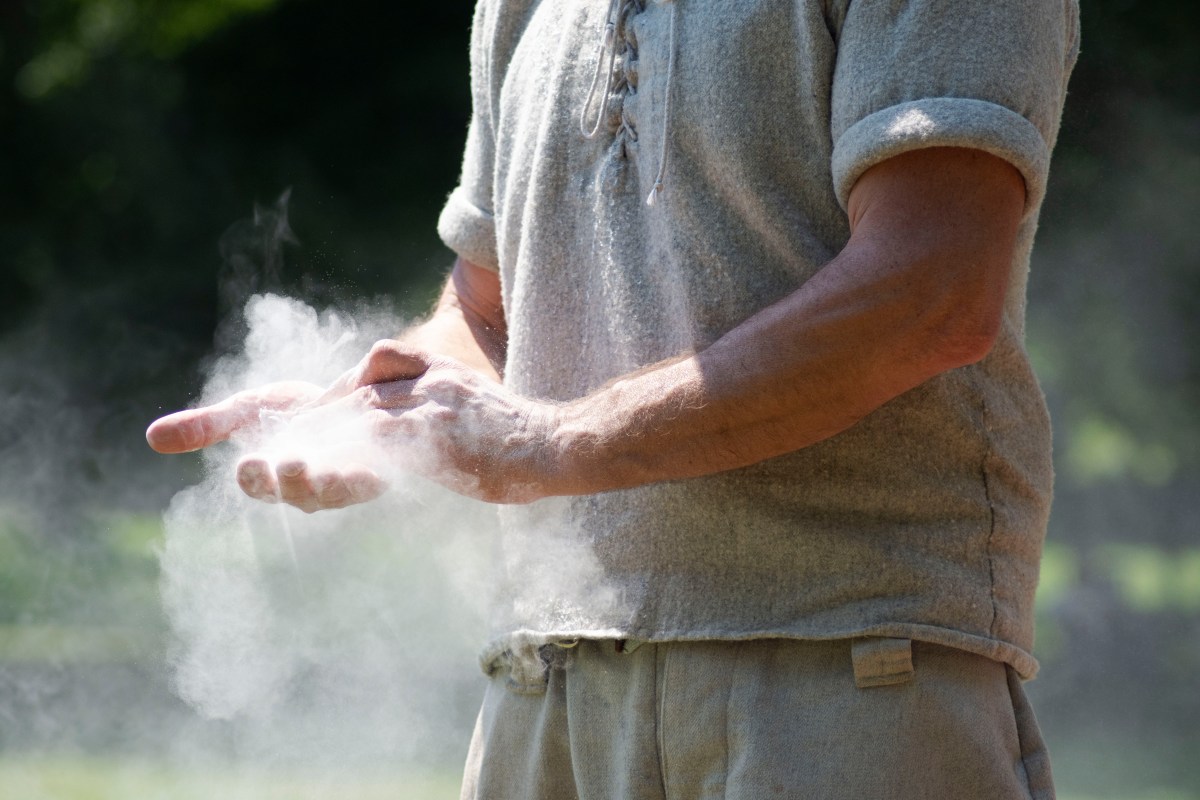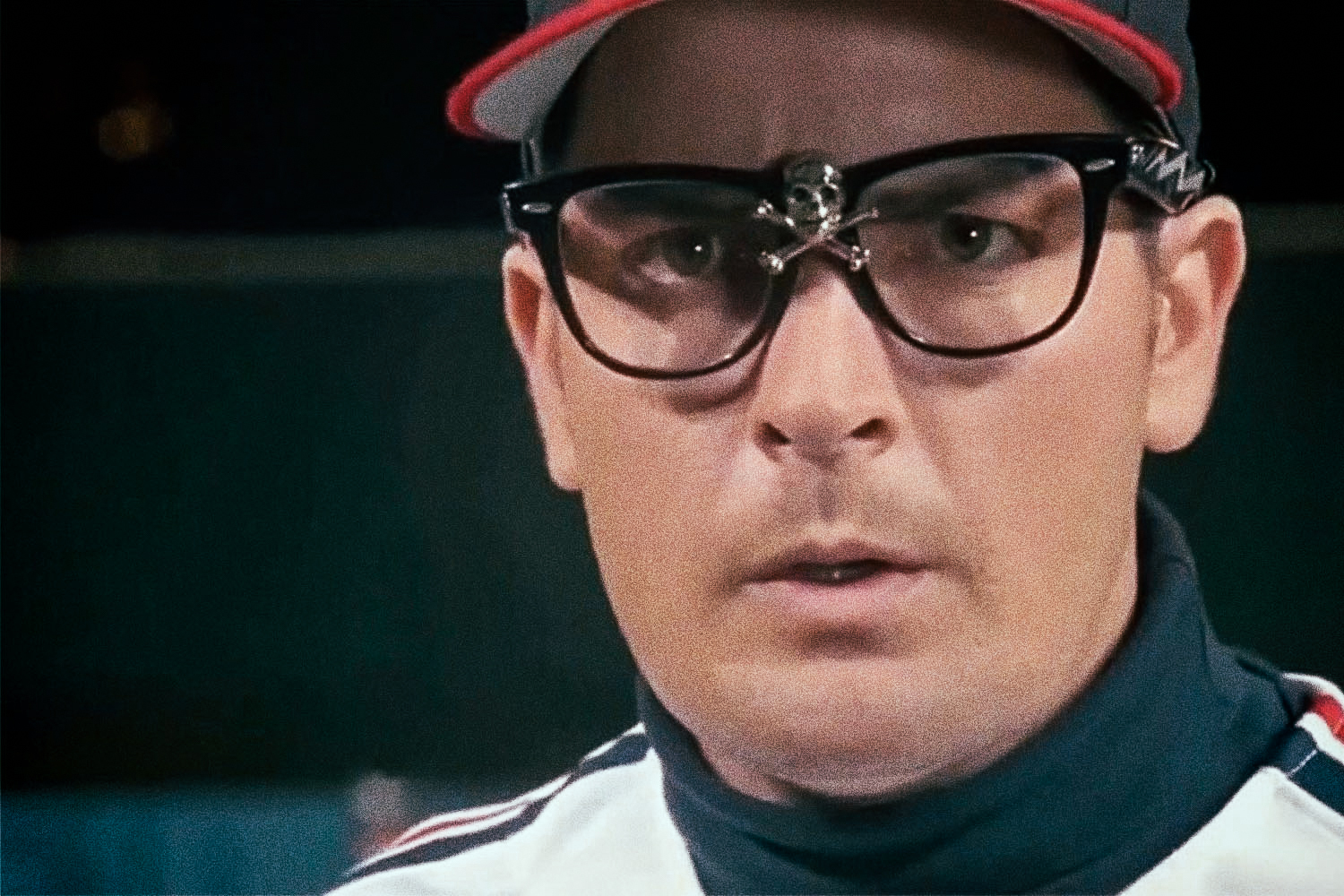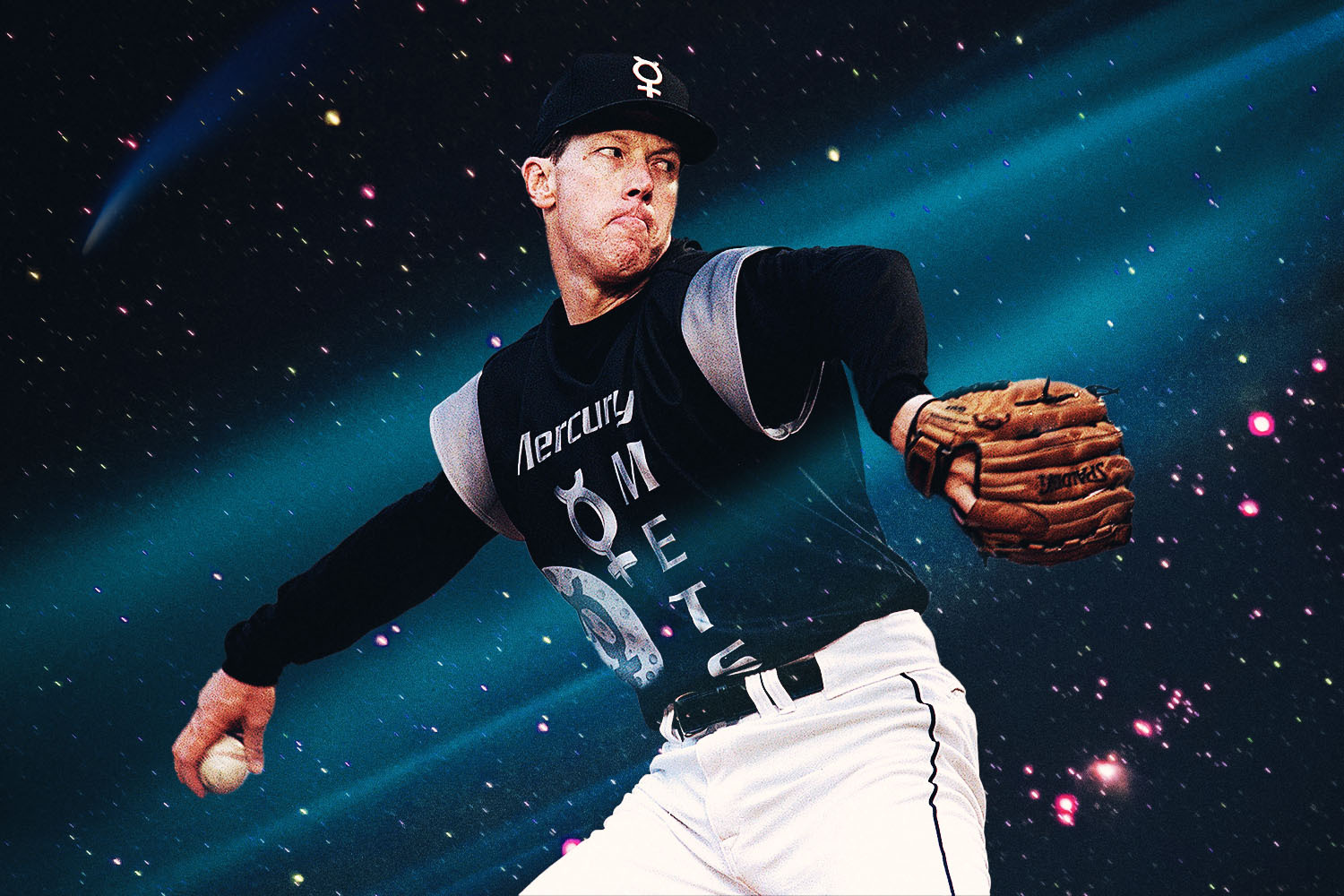Frank Van Zant’s hands are dirty. But after several hours on a baseball field without gloves, that’s to be expected.
Van Zant is the Captain of the Brooklyn Atlantics, a vintage baseball team based in Smithtown, on Long Island. The Brooklyn Atlantics play baseball with the rules, customs and behaviors of the game’s earliest days, in the 19th century. That means first and foremost no gloves, a practice that has led to not just earth-encrusted palms, but broken fingers and torn ligaments for over two decades. But it still hasn’t deterred a group of people intent on preserving baseball’s history.
What we know as baseball evolved from earlier English precedents like the game of rounders, which dates all the way back to the 18th century. A variety of games played with bats emerged over the early 19th century, with baseball establishing itself as the dominant version played in America by the 1840s. Legend holds that the first ever baseball team, The New York Knickerbockers, was formed in 1845 by a surveyor named Alexander Joy Cartwright, though there are historical mentions of baseball clubs some 20 years earlier. As the years passed, the sport became an active way for both Yankee and Confederate soldiers to pass the time during the Civil War. Later, the war’s veterans brought the sport into their lives on a more regular basis, and as it grew and spread so too did its rules and incarnations, all of which inspired the modern version we know and love today.
But the one we see in high-def differs greatly from its roots. In hopes of preserving these roots, the phenomenon of vintage baseball first thrived in the 1990s, with a loosely organized Vintage Base Ball Association arriving in 1996. Among the keepers of its flame were Ed Elmore, Al “Old Dutch” Dieckmann and Jim Dragonetti, who together co-founded the vintage Brooklyn Atlantics team in 1997 (the original Atlantics were founded in 1855, and folded in 1882). Dieckmann became a star vintage baseball expert, researching its history and helping to develop vintage play into a full-fledged pastime in its own right. Vintage baseball is now played across the U.S., from New York to Ohio to California, with an annual 19th Century Base Ball (yes, two words) Festival in Gettysburg, Pennsylvania, that is now in its 11th year. The festival is located not far from the city’s historical battlefields, where soldiers may have played the game in another era.
And while the grounds of the Smithtown Historical Society were not a battlefield, on June 6 they were the site of a double-header between the Brooklyn Atlantics and the Providence Grays. The Atlantics’ signature season came in 1864, as it was that year they went undefeated and won the national championships (they would repeat the feat a year later). The Grays, led by Captain Brian Travers, are best known for a victorious 1884 season.
So their double-header pays homage to two games from two different years: one game with rules from 1864 — no walks if you get hit with the ball; if you overrun first base, it’s an out; if a ball is caught after a single bounce, it’s an out; pitching is underhand; and more — and one game with rules from 1884. The 1884 bears a closer resemblance to the modern game, with overhand pitching, freedom to run past first and no outs if a ball is caught after a bounce, among others. Uniforms are of the time period: the Atlantics’ are thick work pants and a beige pullover embroidered with the crimson letters ABBC, for Atlantic Base Ball Club. They’ll change for the 1884 game to remain as accurate as possible, navy block letters bearing the word “Brooklyn” on their chests. The Grays wear thick, gray wool uniforms the whole time, even in bright sunlight on a 90-something-degree day. This is the dedication that “Old Dutch” would have been proud of, and it’s especially relevant today, “Old Dutch” Day, an annual celebration of Dieckmann’s commitment to preserving baseball history in a living, breathing format.
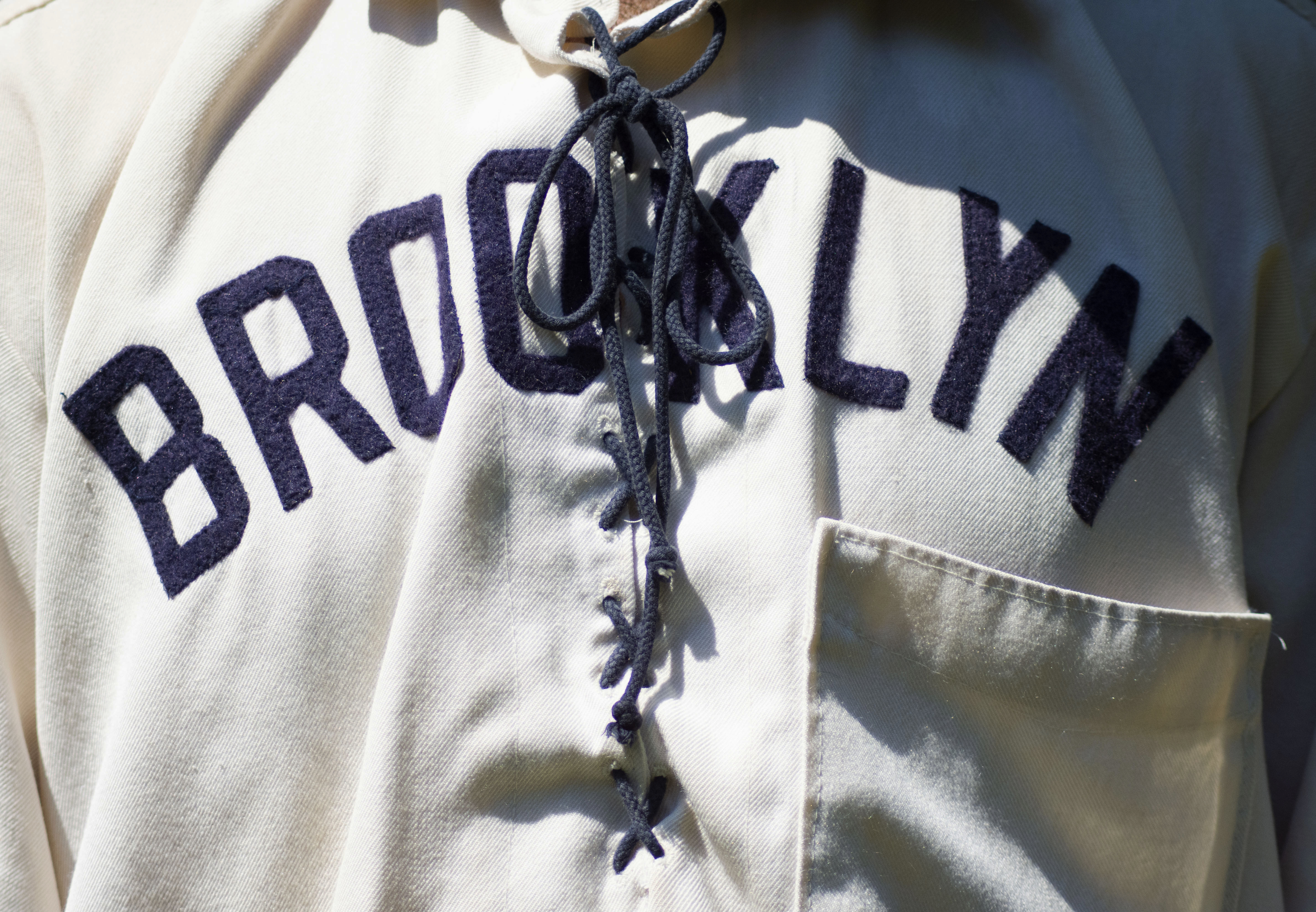
There are rules available and abided by a host of other teams from throughout the 19th century, so players learn as many of the different games as possible, for accuracy and history’s sake. For teams like the Atlantics and Grays, vintage baseball is definitely not just about running around in ‘funny’ uniforms, something they’ve seen with other teams on occasion.
“Even if they might be pleasant enough individuals [and] I’d like them as a neighbor, it’s really not that much fun to play a team that just doesn’t care about the historical accuracy at all,” says Atlantics’ Assistant Captain Sean Ness. “Because then why wouldn’t you just play softball? There are plenty of other avenues to play baseball or softball or whatever if you don’t care about the history of it.” Travers has played 17 different iterations of the game over his 21 years with the Grays.
But the history extends beyond the rules as well. In vintage baseball, fields are only as flat as they might’ve been on a farm, divots and all, with trees sometimes involved in the run of play. Players wear cleats, but they block out the branding of swooshes and letters. One player on the Atlantics plays without shoes entirely, which also would have been accurate to the period. There are only metal cups and glass jars on the sidelines — and no, if you’re drinking out of a glass jar, you can’t fill it with bright blue Gatorade. There are only wooden bats, some handmade, as well as some handmade balls. Players will run into the woods to chase after a lost ball, avoiding poison ivy in the process, because historically there was maybe only one ball to play with (though they keep more on hand in modern times). It’s a labor of love, something done not to make money but simply for passion, and players are happy to endure it battered and gloveless, often unlike their modern counterparts.
“After 22 years and all the injuries … you have to love it, or why are you doing it?” Travers says. “The abuse we put ourselves through because we love the game more than we care about a broken finger is insane. We’re nuts. We know it.”
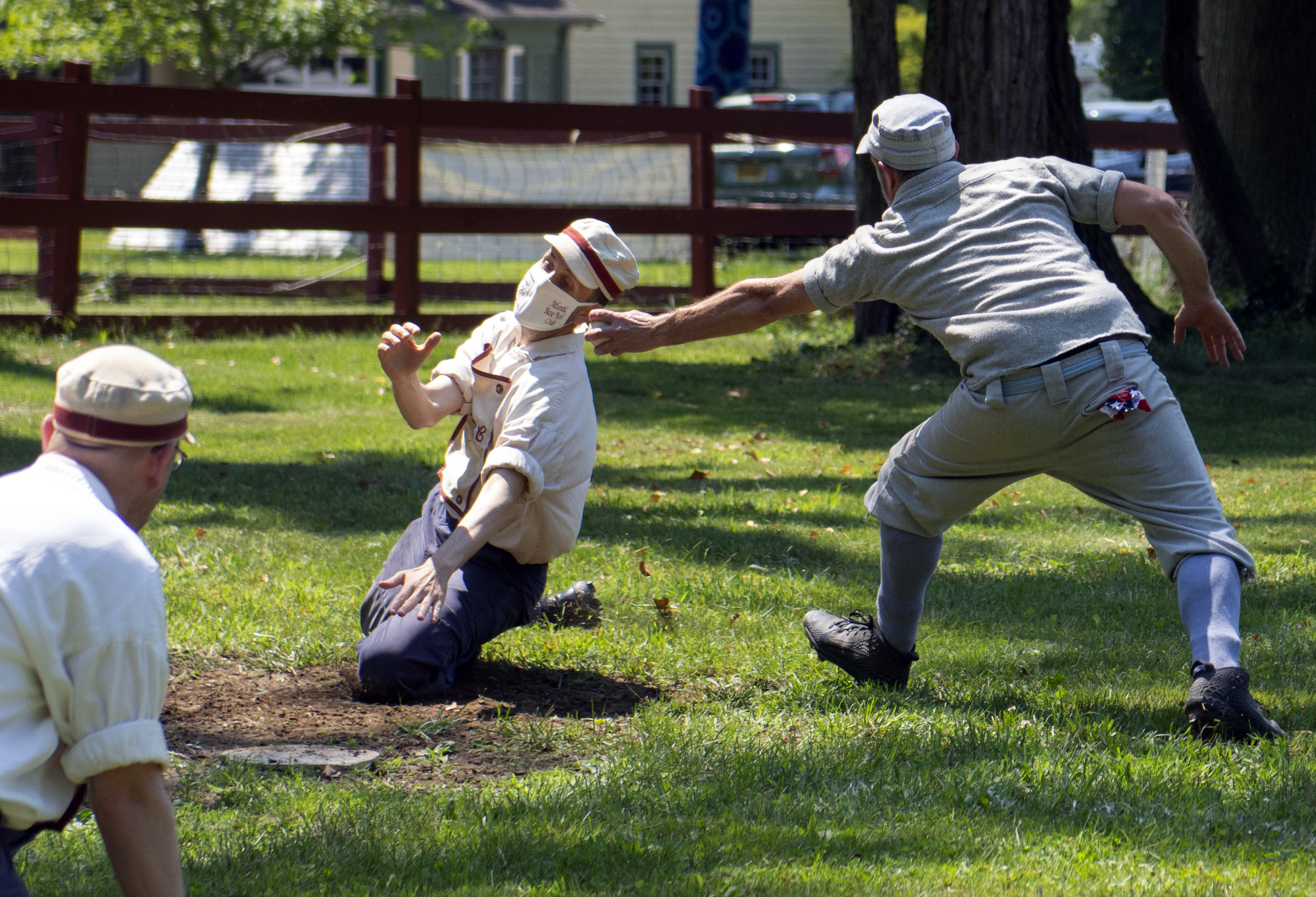
Playing vintage has put modern baseball in a new, sometimes skeptical context for a lot of the players. Sean Ness remembers watching a 60-something teammate tape a pencil to his finger after breaking it in the middle of a game and continue to pitch, while an MLB MVP can refuse play because his allergies are acting up.
“Not to come across like a tough guy, [it’s not] like everybody should be macho, I understand they’re looking out for the future of their health and everything, but for me it’s tough to get over the comparison of this 60-year-old non-athlete playing with a broken finger,” he laughs.
Similarly, the MLB tends to relieve its pitchers after 100 pitches, but Travers remembers days where he threw 500 pitches across two games. And sure, he blew out his arm in five or six years and he’s not a professional trying to make his career last, but maybe that’s why they all play beyond typical limits. “We go out there and just do it,” Travers says. “If my arm falls off because I’m playing ball, whatever.”
The love transcends pain, a love that’s ultimately all about the desire to preserve baseball’s history. “Everybody likes to win and everything, but that’s not the highest priority on our list,” says the Atlantics’ other Assistant Captain, Dean Emma. “If you’re someone who’s not even-tempered or has a history of bad sportsmanship … softball or hardball might be better suited for you. We’re more about educating the public on the infancy of the game and the proper uniforms. We try to win, but if you don’t, it’s not a big deal. We want people that really understand the purpose of why they’re out there.”
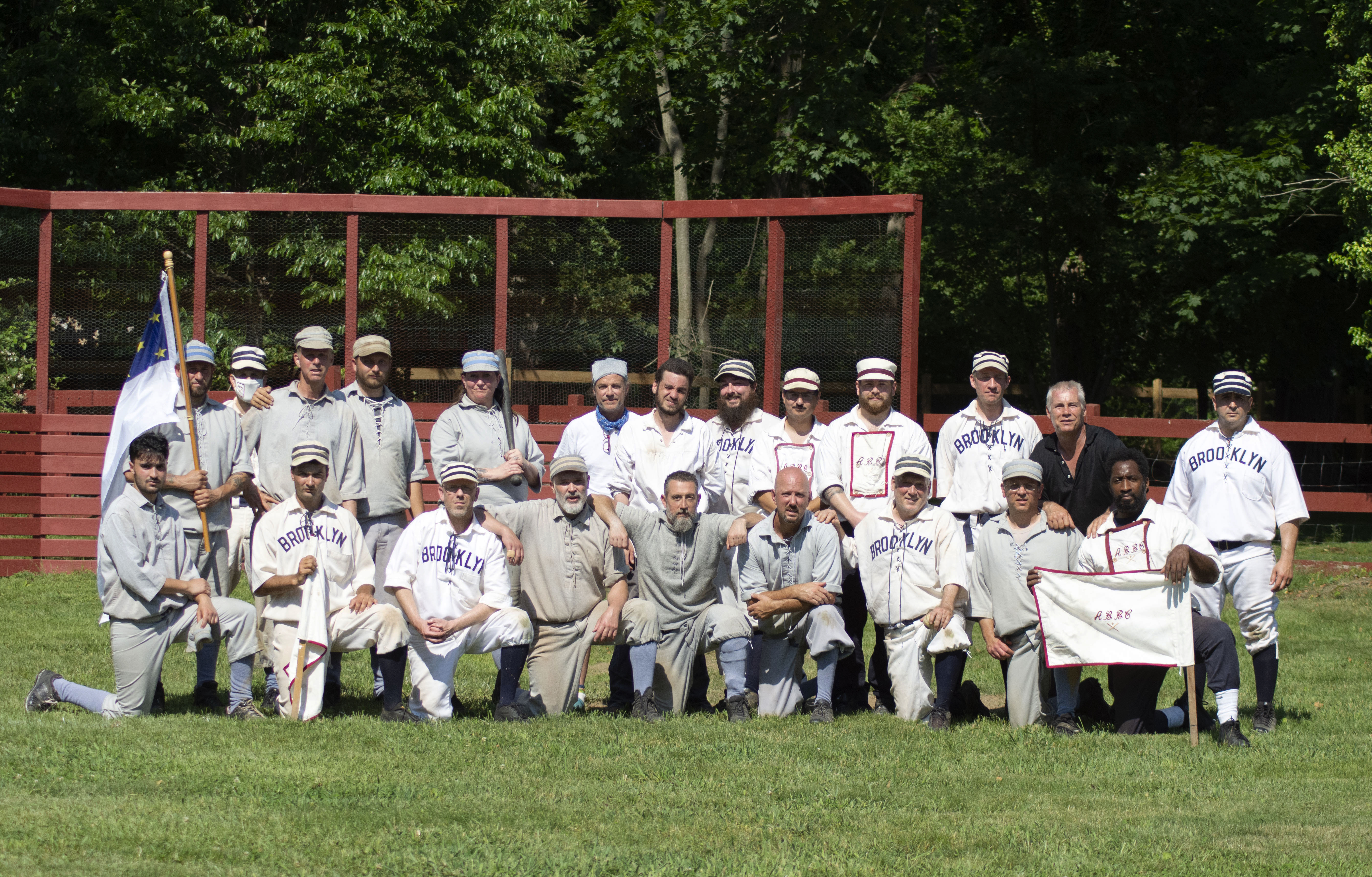
Teams will play exhibitions at historical societies, museums or even minor league games to educate the public. Created along this ethic, vintage teams don’t just cultivate a lineup — they cultivate a tribe. There are some players on the Atlantics and the Grays who have been with the sport and their respective teams for more than 20 years, some since its inception. There are generations of families on teams. Some have been playing vintage since they were teenagers, some since their 40s. Others have joined more recently. The age range of the players is generally from 20s to 60s, but a few are older or younger; players of all backgrounds and experiences are welcome. Commitment to the sport, and the team, is unwavering, sometimes to the point of emblems permanently inked on skin.
Though a shared love of baseball draws them in (Van Zant, a poet and English teacher, even had a book of poetry published called The Lives of the Two-Headed Baseball Siren), what keeps them there is a dedication to the familial ties they’ve created. While it’s not necessarily true for every team, the Atlantics and the Grays barbeque together after games. They’ve attended each others’ weddings. Upon arrival, there’s a cordial exchange of how’s your wife and how are your children, a lighthearted heckle and a hug.
“It’s the love of the game, but it’s also … this is my dysfunctional family,” Travers says. “My regular family must be a little too normal, because this gives you that little bit of drama, but then you get out on the weekend and you play some ball and it’s like nothing you’ve ever seen. But it’s not just the baseball like you’ve never seen.”
In a speech on “Old Dutch” Day, Van Zant sums it up perfectly when he addresses the two teams before the game. “I have a friend who says a baseball field is the only place where life makes sense,” he says. “The beauty of what this all is, not just the competition, but also the spirit of friendship … What an odd, strange group we all comprise, and yet there’s a great love and interconnectedness that’s here, wherever you play.”
The Charge will help you move better, think clearer and stay in the game longer. Subscribe to our wellness newsletter today.
